|
In celebration of the Fourth General Congress of the Union of the Catholic Apostolate, the Catholic Apostolate Center will share weekly homilies from the Congress. Homily for July 10, 2024 “Grant us to be instruments of peace and love, reflecting the love of Christ in every situation” The theme for our reflection and prayer today is, once again, taken from the Prayer in Preparation for the UAC General Congress. It is a very sincere prayer from our hearts: “Grant us to be instruments of peace and love, reflecting the love of Christ in every situation.” Every Pallottine is called to be an instrument of peace and love, by reflecting the love of Christ in every possible situation.
This prayer reminds of the famous prayer of the great Saint Francis of Assisi: “Lord, make me an instrument of your peace.” It is a timeless expression of humility, love, and service to others. The prayer captures St. Francis’s commitment to peace, love and compassion, emphasizing virtues like forgiveness, understanding, and selflessness. It is also a reminder for all the members of the Union that they have to be genuinely involved in the affairs of the world. They have to be instruments of peace and love, fraternal communion and solidarity, through the exercise of forgiveness and compassion. They have to be healers and protectors of the widows and orphans. But all these things are to be done not on their own merit; they have to only reflect the love of Christ in every situation. The first reading from the book of Hosea reminds us that we can cease to be instruments of peace and love. Israel became like a luxuriant vine producing a lot of fruit. “The more his fruit increased, the more altars he built; the richer his land became, the richer he made the sacred pillars. Theirs is a divided heart; now they will have to pay for it. He himself will hack down their altars and wreck their sacred pillars.” (Hosea 10:1-2) God destroyed the arrogance and the symbols of immortality. “Sow saving justice for yourselves, reap a harvest of faithful love; break up your fallow ground: it is time to seek out Yahweh until he comes to rain saving justice down on you.” (Hosea 10:12) Hence the invitation is to reap a harvest of love. In the Gospel passage of today, we see Jesus empowering the twelve disciples to reap the harvest of love, and proclaim the Kingdom of justice and love. “He summoned his twelve disciples and gave them authority over unclean spirits with power to drive them out and to cure all kinds of disease and all kinds of illness.” (Matthew 10: 1-7) Jesus gave them authority over unclean spirits, the source of division and conflicts. The Kingdom of God will be marked by the values of communion, justice and peace. In this context the words of Saint Pope VI in Populorum Progressio (n.76) are very appropriate: “When we fight poverty and oppose the unfair conditions of the present, we are not just promoting human well-being; we are also furthering man's spiritual and moral development, and hence we are benefiting the whole human race. For peace is not simply the absence of warfare, based on a precarious balance of power; it is fashioned by efforts directed day after day toward the establishment of the ordered universe willed by God, with a more perfect form of justice among men.” Speaking of the mission of the Union of Catholic Apostolate in cooperation with all people of good will, living images of charity itself, n.16 of the General Statute identifies a number of areas for our engagement with the world, such as: protecting the values of human life and the family, working for the promotion of justice, solidarity, peace and protection of creation, encouraging inter-religious dialogue, and caring for the poor and needy. We have innumerable examples of our commitment to the needs of the people of God in our Pallottine Family. What we do for the poor and needy will be most meritorious before God. Without genuine commitment to acts of fraternal charity, the Union will always remain just a concept without flesh and blood. I conclude with these words of hope expressed by Pope Francis in his Encyclical Letter Fratelli Tutti: “I invite everyone to renewed hope, for hope 'speaks to us of something deeply rooted in every human heart, independently of our circumstances and historical conditioning. Hope speaks to us of a thirst, an aspiration, a longing for a life of fulfillment, a desire to achieve great things, things that fill our heart and lift our spirit to lofty realities like truth, goodness and beauty, justice and love… Hope is bold; it can look beyond personal convenience, the petty securities and compensations which limit our horizon, and it can open us up to grand ideals that make life more beautiful and worthwhile.' Let us continue, then, to advance along the paths of hope.” (n.55) Amen. Fr. Jacob Nampudakam, S.A.C. UAC President
0 Comments
Advent, the word in and of itself instills hope and builds anticipation for greatness, joy and peace. What is it are we waiting for? It seems with the close of the year, we wait anxiously for those intimate times with our family and friends, a break from work and the routine and a time for closeness. Maybe, we are waiting for a Christmas party, presents and the holiday ambience. As a student, I always find it paradoxical that finals would be during the season of Advent. The hectic study and preparation of exams easily muddles the preparation I could be doing in my own heart for the King. The anticipation, the excess and busyness I find myself in reminds me of the Gospel story where the disciples forget the presence of the Lord in their midst: “And behold, there arose a great storm on the sea, so that the boat was being swamped by the waves; but [Jesus] was asleep. And they went and woke him, saying, ‘Save us Lord; we are perishing.’ And he said to them, ‘Why are you afraid, O men of little faith?’ Then he rose and rebuked the winds and the sea; and there was a great calm” (Matthew 8:23-26). Looking without eyes of faith, the disciples found themselves in a panic and disarray. With a focus on the storm and on the circumstance that assailed them, the disciples forgot the most essential truth that was right there with them on the boat: the Sleeping Christ. The answer to their cries for help was peacefully present in their situation ready to grace them with a great calm. What is it, again, that we are waiting for during this Advent Season? The gift we are waiting for is the sleeping babe, the sleeping Christ, in the manger. The Divine Son, who humbles Himself so greatly that He arrives in the stillness of night, in the quiet with shepherds and sheep alike. The Creator God comes in the stillness. What we are waiting for is the Prince of Peace. My own hurriedness in finishing all of my papers and exams, finding the perfect gifts for my friends and family, making travel plans and somehow finding time to stop and recognize where I am headed resembles the experience of the disciples. I am awaiting His peace, but my actions reveal otherwise. I must intentionally make the effort to stop and breathe in what I am truly searching for this December. May the anticipation throughout this Advent season bring us to stop and ponder the mystery of the Lord of the Universe resting in a manger who has come to encounter our hearts. May the peace of the Sleeping Christ invade our hearts, our minds, and our actions so we too may accept the true gift He wishes for us all this season: a great calm (Matthew 8:26). **This blog was originally published on December 12, 2015.** **This photo is from: https://thejesusquestion.org/2011/12/25/nativity-paintings-from-around-the-world/** “Peace be with you. As the Father sent me, even so I am sending you. Then He breathed on them and said: ‘Receive the Holy Spirit’.” John 20:21-22. The older I become, the more my eyes are opened to the lack of control I have over things of life, how easily I can become consumed by the priorities of the world, and how duped I can be by the devil. I realize more how important it is for me to be waiting in expectation for Jesus to direct and guard me. Do you remember that the first greeting Jesus gave to those he encountered after His resurrection was “peace be with you”? I hang onto those words because this peace is where I am to live. “Peace I leave with you, my peace I give you. I do not give to you as the world gives. Do not let your hearts be troubled and do not be afraid” (John 14:27). Over the past several weeks, I have been reflecting on the Resurrection during my prayer time. When some of the disciples came and saw the empty tomb, they returned home. Mary Magdalene stayed at the tomb, waiting. If you have a minute, spend some time reading John 20. My reflection over these past weeks has focused on Mary Magdalene. Why did she stay? Understanding more of Mary Magdalene’s story, I recognize how profoundly changed she was by her time spent with Jesus. He had, in a sense, loved her back to life! Her salvation was deeply personal and so life-changing that she was willing to seek Him at the tomb and remain there. She wanted to encounter the Risen Lord. All of this has led me to ponder my own spiritual life. Is my salvation that real, that personal? Am I so completely committed to walking in the will of God that I am always waiting to hear His direction for me? Or am I so distracted by the day-to-day that I have lost that readiness to seek His presence in my life? This introspection awakens my desire to be like Mary – who waited by the empty tomb – wanting to encounter the Lord again whenever He chooses to reveal Himself. I want my relationship with my Lord and Savior to be my paramount priority because my identity, purpose, and vocation are rooted in Him. As a Christian, I proclaim that I want heaven – and that comes with the steadfast choice of the way of the Cross of Jesus Christ. Matthew reminds us, “The road to perdition is wide and many choose it. But the road to eternal life is narrow and few find it” (Matthew 7:13). My ideas, my desires, and my decisions need to be aligned with God’s will. As a wife, mother, daughter, friend, colleague, and neighbor, I must be attuned to His voice, His promptings, His guidance, and His graces. Every thought I have, every little act I do, must be in total unity with my Savior – Who is pure, unconditional love. Yes, I want to be like Mary Magdalene waiting for my next encounter with Jesus so I can go deeper and further into His Sacred Heart and become more loving to the people in my life. The question on a very practical level is: how do I achieve this? How do I stay in this disposition of grace, waiting on the Lord? I am bombarded with uncertainty, chaos, division and fear. Satan is prowling to destroy souls. My mind and spirit are attacked from all directions in this troubling world. But one thing remains the same: God is on the throne of heaven, His love for each of us is never-ending, and His promise to be with us is constant. We are told this over and over throughout the Bible. I believe this and I pray for eyes to see the path to walk through the landmines of the day. I ask Him to renew my desire to live and act in joy each day. I recommit daily to looking for goodness in those around me, to refrain from grumbling or criticizing or holding others in judgment. I drink from the well of the Scriptures, particularly the Psalms and the Acts of the Apostles, to keep my focus on His ways. I receive food to strengthen me from the Eucharistic table, the Rosary, the Divine Mercy chaplet, and singing songs of praise. When God quickens my spirit, I share a compliment, a smile, a hug, an encouraging word, a listening ear, or a prayer. Opportunities present themselves continually and my choices are what keep me in the heart of Jesus! This is what makes my salvation personal and allows me to live in joy and hope when the world screams the opposite. Little acts, one choice at a time, keep me ready for His direction. By myself, I am small and weak. Listening to Christian music, hymns or chants, working through the beads of my Rosary, saying numerous prayers, attending Mass frequently, receiving absolution for my many failings in Reconciliation, and doing an examen before bedtime all help me remain in His presence and live in His will. From these, I can smile more easily, speak encouragingly, think positively and share love unreservedly. My salvation on that Cross in Calvary rejoices in the empty tomb and I stand waiting for my risen Savior to protect me and direct me every step of my journey. Lord help me to be bold, to proclaim your truth and to love always, no matter the circumstances. Give me ears to hear Your direction and feet to follow in Your footsteps so that Your love will flow out of me to everyone I meet. And may all our souls be a wildfire of LOVE that burns into our eternal home You have prepared for us in glory!
“Have you seen Him?”
The question is uttered among the bewildered Apostles and echoes out to us this Easter season. In the Gospel reading for Divine Mercy Sunday, Thomas hadn’t seen him. Thomas didn’t believe the men who had become his brothers when they told him about the resurrected Christ. Not even the details of his wounds swayed him. “Unless I see the mark of the nails in his hands and put my finger into the nailmarks and put my hand into his side, I will not believe,” he says. Believing meant vulnerability. It meant more heartbreak. The Man for whom Thomas and the others had left everything, the Teacher who had sent them two by two to preach and heal, the Master who had washed their feet and fed thousands with a few loaves and fish was gone—betrayed, tortured, killed. It was easier not to believe. It was easier to stay hidden away in the Upper Room with a heart as locked up as the doors. It was easier to go back to what they knew. Even Peter resumed fishing. Today as we continue in the third week of Easter, I ask you what the disciples likely asked each other in those first days: Have you seen Him? We prepared for Easter throughout 40 days with prayers, fasting, and almsgiving. We kept vigil with Jesus on Holy Thursday in the Garden of Gethsemane and in Caiaphas’s prison. We shuddered at His scourging, covered our ears to the mocking, and knelt in front of Him at the foot of the Cross. We waited in silence as the tomb was closed and we entered into Holy Saturday. Then, we celebrated His rising on the third day. But as we continue in the Easter season, can we truly say we have seen Him? Have we experienced Easter joy or are we locked in the Upper Room or back to fishing? Grief, anger, passivity, media consumption, alcohol, food, loneliness—all of these could be our Upper Rooms. All of these could be means of locking our hearts to the Good News of Jesus Christ. But what does Jesus do in response to our locked hearts? He shows up. He extends His wounded hands. He breathes peace. This is what this fifty-day Easter season is all about: encountering the Risen Lord. Seeing Him. Touching His wounds. Sharing a meal with Him. Allowing Him to open the Scriptures to us and reveal God’s plan of salvation—even in the here and now, even in our own lives. Our fasting, grieving, and sighing is over. Our desert is over. But sometimes entering into the light, joy, and beauty of the Easter season can seem jarring after all we’ve worked on spiritually or given up. Even more so, we look at the world and may not hear the Easter song. We see humanity still trapped by sin, death, and division. Perhaps our hearts, like Thomas’s and the other disciples’, are broken. Perhaps after a year of fear, isolation, confusion, and division, it feels easier to lock the doors than to believe. Believing requires faith, hope, vulnerability. It requires opening yourself to the possibility of another heartbreak. And it requires letting go. And so, Thomas says, “I will not believe.” And we may say, “I cannot believe.” But Christ’s wounds change everything. They show that suffering can be redeemed. That our scars, while part of our story, are not the end. That death has been humbled, and that glory and resurrection await us. Over these next few weeks of Easter, as we prepare to celebrate the Ascension of Jesus and the gift of the Holy Spirit at Pentecost, I invite you to spend time with the disciples as they sit once again at the feet of Christ. Jesus spends 40 days with them—the same length of time as the Lenten season—instructing them, encouraging them, accompanying them. Do not let this most holy of liturgical seasons end on Easter Sunday. I invite you today and every day to encounter the Risen Lord. Spend time with His wounds. Show Him your own. Allow His words to penetrate your heart: “Peace be with you.” Only then can the doors of our hearts be unlocked. Only then can our wounds be transfigured. Only then can we fall to our knees and proclaim with Thomas, “My Lord and my God.” Click here for more ideas to cultivate Easter joy. Tomorrow, we celebrate the birthday of St. Vincent Pallotti, patron of the Catholic Apostolate Center and founder of the Union of Catholic Apostolate. St. Vincent Pallotti was born on April 21, 1795. How appropriate for the saint who lived and worked in the city of Rome to share his birthday with the traditional date for the founding of the city. To help celebrate his birthday, I have put together a list of some of his more interesting achievements and activities during his life. I hope that you too will be inspired by his life. 1) The Baptism of St. Vincent Pallotti St. Vincent Pallotti was baptized on April 22, 1795 in the St. Lawrence Church in Rome. This began his life in the church. 2) St. Vincent Pallotti on Holiday On his arrival in Frascati around 1805, St. Vincent Pallotti exchanged his new shoes for that of a poor boy. Giving away his new clothing to the poor would become a lifelong habit for the saint. 3) St. Vincent Pallotti Makes a Prediction While speaking with the young Giovanni Mastai-Ferretti in 1817, St. Vincent Pallotti predicted that he would one day be elected to the papacy. Mastai-Ferretti was elected Bishop of Rome on June 16, 1846. 4) St. Vincent Pallotti the Professor St. Vincent Pallotti was awarded two doctoral degrees in both theology and philosophy in 1814 and 1819. Teaching was one of the favorite activities of the saint. 5) St. Vincent Pallotti Showing Courage During the cholera epidemic of 1837, St. Vincent Pallotti organized a barefoot procession of religious. This action was penitential and showed that they were not afraid of the disease. 6) Catholic Apostolate Received Church Approval St. Vincent Pallotti received approval for the Catholic Apostolate from the Church in 1835. Pallotti also received support for the Catholic Apostolate from Pope Gregory XVI when others objected to it. 7) St. Vincent Pallotti the Chaplain Beginning in 1838, St. Vincent Pallotti served as a prison chaplain in Rome. He often worked with the condemned, saving many souls. He had a true willingness to serve all, especially the poor and the marginalized. 8) St. Vincent Pallotti the Peacekeeper St. Vincent Pallotti stopped a riot in the Trastevere neighborhood of Rome. He implored the people to stop rioting by showing them an image of Mary, Mother of Divine Love. 9) St. Vincent Pallotti Preaches one Last Time On the last day of the octave of the Epiphany in 1850, St. Vincent Pallotti gave his final sermon. 10) St. Vincent Pallotti Dies In 1850, St. Vincent Pallotti gave his final blessing to his followers. He showed great courage even in the face of death. There are many more stories about St. Vincent Pallotti that you may find interesting. Check out our St. Vincent Pallotti Portal to learn more about our patron and his many works. As a child, I played a favorite game with my friends called “follow the leader” where everyone did exactly as the name suggests – followed the leader. If you didn’t do what the leader did you would be eliminated from the game. This game correlates to the Christian life: when we follow Jesus and do what He did, we reach our heavenly destination. We are wise to remember and heed Matthew 18:3-4: “Unless you become like children, you will not enter the Kingdom of heaven. Whoever becomes humble like this child is the greatest in the Kingdom of heaven.” How important it is as an adult Christian to always have the willing mindset of a child – to follow the leader with joyful expectation and simple trust. This reminds me of a remarkable event in my life that illustrates this concept. Several years ago, when our four youngest children were still living at home, we embarked on one of our family camping vacations. Having a large family, we had chosen camping as a way to enjoy a vacation together while on a budget. It removed all the distractions of our life of modern conveniences and afforded us time in the great outdoors to relax and build memories. This particular adventure took us to Cloudland Canyon State Park on Lookout Mountain, on the border of Georgia and Tennessee, a glorious place high in the mountains with astounding stargazing at night and amazing hiking trails during the day. One day we chose to traverse the Waterfalls Trail. The sign at the trailhead read “Steep grade ahead, use caution. Stay on marked path.” That should have been my moment of truth, my opportunity to bail and choose to sit on a bench and enjoy the 1780 ft vista and await my family’s return. But I ignored the queasiness in my stomach and forged ahead with them as they vivaciously marched down the canyon on a slim, winding trail. My stomach began to ride higher into my chest, my breathing was becoming fast and bordering on gasping and my feet were becoming heavy and unsure on the many twists and turns. After we passed under an enormous rock overhang, my body halted and I literally could not take another step. I was paralyzed with fear. Did I forget to mention, I’ve suffered from overwhelming fear of heights ever since I was a teenager? It was alive and acutely crippling on this day. As I watched my children bounding ahead and walking precariously near the rim of the steep trail, the fear gripped me to the point of panic. My husband kept telling me to look ahead, not down, and to follow his footsteps so that I would be safe and secure. The more I thought about moving forward, the stiffer I became. Moving at all in this way was sure to make me more apt to stumble. On my own steam, I could not go any further. I was at an impasse. With wisdom and child-like trust, my husband gathered our children all around me and asked each of them to lay their hands on me and to pray for all fear to cease so that I could be free to walk with joy and confidence. They did not want to leave me behind or to turn around and abandon the hike to the waterfalls. After several minutes of prayer, my breathing slowed to normal, my heart stopped racing, I unclenched my fists, and my legs relaxed. I felt a distinct release of tension in my body and my mind – so much so that I knew that I could resume the hike without fear. It was a healing miracle I claim to this day, as I can now hike steep mountains and enjoy magnificent views from heights that I could not before. My husband and children were instruments of faith who infused the peace of Jesus into me so that I could follow the leader and enjoy the boundless beauty nature had to offer on that hike. Later that night, my husband commented that Jesus healed me and gave me sure feet to traverse the steep path with assurance. I will never forget that manifestation of God’s love for me and I am willing to continue to follow the leader on all the paths He takes me because I know He will give me strength and guidance every step of the way. I am comforted by the instruction in Matthew 7:13-14 where Jesus says: “Enter by the narrow gate, since the road that leads to destruction is wide and spacious, and many take it, but it is a narrow gate and a hard road that leads to life, and only a few find it.” As humans, we cannot find and walk this path on our own. We need a leader, but we also need to be aware of all the people God places in our lives who provide guidance and leadership when we need it. It is part of the mystery and beauty of living in community with others in this life. If I had not yielded to the assistance of my family, I would have remained in bondage to crippling fear. I received help to navigate off the wide road of self -doubt and irrational panic that is destructive. With simple child-like trust and prayer, I was able to stay on the narrow path that led to a glorious adventure and freedom! My prayer is that each of us practices the obedience of following the leader so we can navigate the path that leads us to eternal peace. It is certain to be rough, but instruction is always available to us. We have to be humble and have child-like trust to adhere to the direction He provides. “Whoever wishes to come after me must deny himself, take up his cross, and follow me.” Matt. 16:24 As the ongoing coronavirus pandemic eventually allowed for opportunities to leave the home, one of the most meaningful greetings which welcomed my return to Mass were the familiar words, “Peace be with you.” The calming presence of the parish priest eased the troubles of my mind, soothed the restlessness of my heart, and enlivened my soul to sing, “Let us go unto the House of the Lord!” While the celebration of the Holy Sacrifice of the Mass and the reception of our Lord in Holy Communion immediately made up for the lost time during the pandemic, there were other reminders that we had been away: new priest assignments, reminders to exchange the weekly offering envelopes, many parishioners enthusiastically greeting each other in happy parking lot reunions, our pastor sporting a new beard, and someone even observing, “You’ve lost some weight, Father!”
The place our parish priests hold in our hearts is a treasured one. We depend on them to teach us through homilies, expose the Blessed Sacrament, listen to our sins and offer absolution, preside over the nuptial Mass, baptize our children, anoint the sick, and console us through times of death. And that’s just the minimum. While the rest of us are busy at work, school, or caring for our households, our parish priests are meeting with the church leadership, making rounds at schools or hospitals, organizing retreats and special services, offering spiritual guidance, and working at the rectory. But caring for the spiritual needs of hundreds of parishioners does not end at 5 PM. Starting from the sacred occasion of ordination, a priest is always on-call. Who rushes to the side of the dying, cares for those who have lost everything, counsels those in conflict, or ministers through any number of crises? Who faces the mounting expenses and bills of the parish, limited Sunday collections, possible stagnation of new family registrations, and who perhaps lacks as many helpful hands as he would like to keep the place running smoothly? Especially through this pandemic, the parish priest again and again is called to bring us into an encounter with Jesus Christ as best he can with whatever resources are at his disposal. If caring for our household’s needs presents a challenge, just imagine how the parish priest feels overseeing his parish! As the Church celebrates the feast day of St. John Vianney, we can see how so many of the priests in our lives emulate the example of the Curé d'Ars, who himself followed the example of the priesthood of Jesus Christ. The French Revolution resulted in an increase of the population’s ignorance of and indifference to religion. As a result, St. John Vianney went about his priesthood by spending at least 11 or 12 hours a day in the confessional in the winter; longer still in the summer. The simple piety of this holy priest not only brought about many conversions for the Church, but reinvigorated the faith in areas where secularism had long dominated the culture. Likewise, by immersing themselves into the daily lives of our communities, our parish priests “serve ‘in the trenches,’ bearing the burden of the day and the heat (cf. Mt 20:12), confronting an endless variety of situations in [their efforts] to care for and accompany God’s people.” Pope Francis continued, in his 2019 letter to priests commemorating the 160th anniversary of the death of St. John Vianney, to express his closeness and solidarity to priests. He also expressed personal gratitude “for your fidelity to the commitments you have made… [and] for the joy with which you have offered your lives.” The Holy Father concluded his letter by praising the witness of their shared vocation: For I am confident that “God takes away even the hardest stones against which our hopes and expectations crash: death, sin, fear, worldliness. Human history does not end before a tombstone, because today it encounters the “living stone” (cf. 1 Pet 2:4), the risen Jesus. We, as Church, are built on him, and, even when we grow disheartened and tempted to judge everything in the light of our failures, he comes to make all things new.” … May we be men whose lives bear witness to the compassion and mercy that Jesus alone can bestow on us. Let us strive to show the priests in our lives our gratitude and support. May many men continue to discern and answer the call of our Lord to the sacred work of ordained ministry. As we answer the universal call to holiness in our own lives, may we also support those who have dedicated their lives to answer, “Here I am. I come to do Your will.” To learn more about Holy Orders, listen to our latest podcast here.  This Easter season, I have been thinking a lot about my late brother Tim, who died in an accident seven years ago - at the age of 24 - while serving as an EMT in Indianapolis, IN. Tim’s death, along with the death of his IEMS partner Cody Medley, left all their friends and families at an inestimable loss. While I never got to meet Cody personally, I have learned that he was an exceptionally driven and talented young person who also served as a fire cadet before becoming a paramedic. Tim’s story is not much different; he was an Eagle Scout and volunteer EMS before going professional and passing his paramedic certification shortly before he died. In life, Tim achieved success in almost every field. As a teenager he won academic and musical scholarships and posted regular five-minute miles in outdoor and indoor track. He mastered Mandarin and spent an immersion summer in Shanghai. He participated in a service trip to Jamaica and volunteered back home as a “running buddy” alongside students with special needs in Central Park. These successes, paired with his later commitment to the medical profession, truly made him “A Man for Others” – the Jesuit motto of his alma mater, NYC’s Regis High School. Only looking backwards have I come to appreciate how brilliant Tim was. Perhaps you have a similar person in your family – someone who is so smart that they are intimidating. Tim was fearless in challenging others (especially those in authority) when he thought they were wrong. I have thought of him throughout this entire pandemic. As a first responder, I know that he would be helping wherever help was needed. As the outspoken person he was, I know he would have choice words for those he felt were ignoring public safety protocols. And most of all, as a cuttingly funny person, I know he would help me laugh during this time. Tim died three days into Lent, on February 16th, 2013. I have remembered him especially during every Lent and Easter since then. This past Lent was perhaps the most difficult yet. Many say that it takes seven years to heal from losing a loved one. The year 2020 marks seven years for all who loved Tim. To me, I felt healing – which also meant letting my guard down to feel fully the pangs of loss I couldn’t afford to feel in 2013. The coronavirus situation, if nothing else, has clarified the relationship between life and death. We are all vulnerable humans. This can be a scary thought, but also a freeing one. This can be a time to meditate on life as what it is – a short chance to grow, love, and serve others. We do not know how long the journey will last. I sometimes think that my brother attacked life the way he did because he might have sensed that he had less time than others. He used to wake me up after midnight, for instance, after I had already gone to bed, and say “Come on bro, get up, let’s make some memories.” At the time I thought he had a screw loose. Now I think he was prophetic. Recently in the Gospel readings, we hear Jesus tell the disciples, “Peace I leave with you; my peace I give to you. Not as the world gives do I give it to you. Do not let your hearts be troubled or afraid.” These words are a balm to all of us who have experienced loss, or who fear loss during these challenging times. As I read this passage, I am touched by the care and concern Jesus shows for his followers. He is also being quite honest with them and reminding them that they will lose him. The promise of peace is made realer by the reality of loss. This is what I receive from today and feel to be true in my own life. One year after Tim’s death, on Easter Sunday 2014, my family went to Mass in a church we had never been to before. The previous year had been difficult for everyone. Personally, I had not been taking care of myself mentally, physically, or spiritually. In the prior twelve months, I had not felt anything approaching peace. I was experiencing great fear and having awful panic attacks. That morning, sitting in the pews, waiting for Mass to begin, I suddenly noticed all sound around me fade out. I felt a sensation of all the breath leaving my body – and then my next breath was a slow, purposeful breath that was like drinking cool water in the desert. I was able to begin breathing in a deep and rhythmic way. Over the next few minutes, I felt as if warm light was streaming over me, from the head down. It was a feeling of complete release and relief. Ever since, I’ve been hoping to feel that peace again. Like my brother, I doubted (and still doubt) aspects of my faith. Tim wrestled to understand people who believe that faith and the intellectual life are incompatible. Being the true original that he was, I think he found it difficult at times to imagine a place in Christianity where he fit in. Yet after his death, I learned that some of Tim’s recent writings and reflections expressed the faith of a mature man who trusted in a loving God. I reflect on his words often as I remember my “kid brother” - who responded to numerous life-or-death situations and treated severe injuries which I would be terrified to walk into. Like everything else, Tim’s faith journey happened at a rate and intensity that most of us will never know. As Easter moves on and we navigate the new normal that is COVID-19, my spiritual suggestion (for what it’s worth) is this: In your prayers, dreams, and doings, try to let fear and hope co-exist. I will try to do the same. If we can hold those two seemingly irreconcilable opposites, we may find that peace can sprout like a flower right in between our hands. “What is man that you are mindful of him or the son of man that you are for him?” Ps. 8:4 In a time such as this, in the middle of a worldwide pandemic, many people are tempted to ask questions: Why is this happening Lord? What will become of me? Have you forsaken us? Do you still care for us? As Catholics, we need only to search the holy scriptures to find our answers. Isaiah 41:10-13 says “For I am the Lord, your God, who takes hold of your hand and says to you, do not fear, for I am with you; be not dismayed, for I am your God, I will strengthen you, I will help you, I will uphold you with my victorious hand.” In the midst of overwhelming craziness, staring down the face of so many unknowns, this verse gives me such comfort! I read it and remember the Israelites wandering in the desert for a very long time, not knowing how or when they were going to be delivered to the Promised Land, and it puts this situation in better perspective. From history, these people were fed and their needs provided for because God promised He would help them. I do not need to know when this specific disease will be eliminated. I do not need to know how long my ‘normal life’ will be turned upside down. I do not need to worry if my basic needs will be provided for. I have a promise from the Almighty. His promise is unbreakable and everlasting. So where does my anxiety come from? It comes from not leaning on His strength, not trusting in His provision, not resting in His perfect love. I need to spend my time praising and thanking Him for the fact that He cares about every minute detail of my life and has told me He will not abandon me – unequivocally! Upon my rising, I must choose to be grateful for another day to live in service of my husband, my children, and my neighbors. When I begin in gratitude, I can step forward into the day with all it’s uncertainties and live in peace, not in fear. “Cast all your anxiety on him because he cares for you.” 1 Peter 5:7 When I recall that God cares for each of us with a love that is perfect, this knowledge begins to settle in my heart and permeates my soul. It is an act of surrender – to cast my human weaknesses on Him and go about the duties of my day with a disposition of peace and hope. St. Paul reminds us in 2 Timothy 1:7: “For the spirit God gives us does not make us timid, but gives us peace, love and self-discipline.” This applies to all of us – not just the people in Ephesus a couple thousand years ago! God’s love is timeless, limitless, and eternal. It is beyond our human comprehension. It requires us to choose to believe and experience Christ’s love within us. You see, we have more important things to be doing than spending our time questioning, worrying, wondering, lamenting, and fearing. He reassures us over and over that He is near, is helping us, and is carrying us. We have evidence of His care for us in the many selfless people on the front lines serving our medical needs, manning our stores, and delivering our supplies. They are God’s love made manifest in this crisis. It is our choice to decide that we will believe this and trust moment by moment that His promise is true and secure. We don’t have to fully understand it – because we won’t – but in order to live in serenity with a calm mind, we must choose to walk in complete belief. We can accomplish this amidst great trial, because He is our helper and our strength, our strong tower. As we live in the disposition of faith that God will care for us in all circumstances, we can reach out to those around us and share this magnificent gift. We can be His hands, His voice, or His smile to quell the fear in another. This is our call as Christians – to wholeheartedly believe and to unconditionally share it with everyone. It seems so simple. And it is – when we devote ourselves to prayer and fasting and Scripture reading. We are afforded so many wonderful ways to do these. We have our Bibles in book form, on our tablets and phones. We can stream Masses being offered in churches all over the world right from our couches. There are numerous holy men and women who speak and write about God’s promises that we can listen to or read. In our progressive digital age, it is amazingly easy to immerse ourselves in material that will strengthen our belief and encourage us in the truth of God’s care for us. How fortunate we are! We can go about our days, in the middle of great strife, with confidence that God is mindful of us, each and every one of us. “Whoever trusts in the Lord is kept safe.” Proverbs 29:25 Still, because I am just a mere mortal with lots of frailties that can derail me from the Godly path, I keep reminders on the walls of my home to keep me focused on this truth. A wooden sign that reads ‘Expect a Miracle’ hangs in my family room. The Good Shepherd cradling a sheep hangs in my dining room. Pictures of the Sacred Heart of Jesus and the Immaculate Heart of Mary hang over my bed. The face of Jesus hangs in my living room. Crucifixes hang in every room. These are my personal visual reminders of the love of God that help me keep my eyes on Him, my heart comforted, and my mind at peace. I recommend everyone find tangible ways to stay connected to this truth so that we can be disposed to share it with others. It is when I live from this mindset that I can sing with total confidence that it is well, it is well with my soul! “Consider it pure joy, whenever you face trials of many kinds, because you know that the testing of your faith develops perseverance. Perseverance must finish its work so that you may be mature and complete, not lacking anything. If any of you lacks wisdom, he should ask God, who gives generously to all without finding fault, and it will be given to him. But when he asks, he must BELIEVE and not doubt.” James 1:1-8 Who are we that God cares for us? We are His. He thought us into being because He is love and He wants to share His love with us for time and eternity. That is a comfort and a confidence I can rest in! This is the Savior who is mindful of me. Thank you, Lord! Continue to shower me with the grace to walk steadfast in my belief. No matter the trials or circumstances, God is with us and all will be well. "Humanity will never find peace until it turns with trust to Divine Mercy" (Diary, p. 132). Here we are, with Divine Mercy Sunday this weekend, and instead of being in our churches with our communities, we are at home figuring out how to make this day still sacred. What do we do? Have we entered into the joy of this holy Easter season in the Church, or are have we fallen into despair that we remain in this time of “shelter in place”? Maybe it’s both? For me, I was sort of giving God an ultimatum during the Lenten season: “Lord, we will endure Lent separated from our communities, but shouldn’t you show your power and end all of this when Easter comes?” I have truly wrestled with embracing our new normal at home and fully entering into the joy of the Resurrection—the joy that comes from knowing I have been freed from the bondage of sin and death although it’s completely undeserved. We know this physical separation during the coronavirus pandemic is a way to love our fellow man, and we embrace it for the sake of love. Yet still, have our hearts embraced the message of Divine Mercy? When the message of Divine Mercy was given to Sister Faustina (and then to the world), the world was in a terribly dark place: war, hatred, and brokenness abounded. Jesus knew the world needed hope, a reminder of the infinite love He has for humanity, and to trust in His Mercy. And now, here we find ourselves in a different kind of darkness—a darkness of disease, isolation, blame, and fear. And still in this time and in this place in which we find ourselves separated from our communities, away from our physical Churches, and isolated in our homes, the Lord has gifted us the beautiful message of Divine Mercy. As Bishop Robert Barron said, “Into all the dark corners of our human experience, God’s mercy has come.” The message of Divine Mercy reminds us that no matter how dark it is, or how deep our sin runs, Jesus’ great love for us is greater still! He has defeated sin and DEATH. What more can we fear? He desires to be with us, for us to embrace Love itself. Divine Mercy is summarized by Jesus’ first words to His disciples after returning from the dead: “Peace be with you” (John 20: 19). After greeting his disciples this way, he says it again: “Peace be with you” (John 20: 21). The disciples, like us, needed to embrace the message Jesus brought, a command of peace and trust. When we trust, surrendering our hearts and lives to the one we are meant for, true peace reigns. Peace that cannot be stolen by disease or fear but that is rooted in our identity as beloved sons and daughters of the one who can conquer all things, even death. As we prepare to celebrate the Feast of Divine Mercy, may we surrender ourselves to Jesus, embracing the message of Divine Mercy— that His love on the cross, His resurrection from the dead, His love for me and for you can truly reign over our world in a time of uncomfortable uncertainty. Let us shout with joy, “Jesus we trust in you!” and allow His peace to rule in our hearts once more. This current COVID-19 crisis has shaken up the end of the semester even more than most students could have even imagined. Since my university went online through the rest of the semester, so much has changed: events and programs that were being planned since last school year have been canceled; fun outdoor adventures with the onset of spring are postponed; classes have transitioned to completely online settings. The way I would best sum up this time is unexpected significant change. But this change can lead to many ways of unexpected growth while adjusting to this new normal for the foreseeable future.
These couple of weeks adjusting to the world of online classes has allowed me to take some time and reflect on the past, present, and future. In college, time seems to fly and changes that occur over time sometimes just seem to pop up. Yet in these weeks of change, time hasn’t been flying by, and things aren’t happening as smoothly, but that’s okay – it’s perfectly fine if adjusting to this new normal takes longer than it may have at college. In my reflecting, a few thoughts stuck with me as particularly helpful in this unexpected journey:
From the time this COVID-19 pandemic first began to alter life in February, one particular prayer has been an unending source of peace for me. It is called the Serenity Prayer: “God, grant me the serenity to accept the things I cannot change, the courage to change the things I can, and the wisdom to know the difference.” Jonathan Harrison is a Program Associate for the Catholic Apostolate Center and a student at The Catholic University of America studying biochemistry and theology with a certificate in pastoral ministry. On March 7, my husband threw a surprise party to celebrate my 30th birthday. That would be the last time I would physically spend with many dear friends for at least a month. It was at the beginning stages of the coronavirus pandemic when the United States seemed to just barely be grasping what was going on across the Atlantic. We were aware but unafraid. The virus was like the flu. It only affected the elderly and those with compromised immune systems. It wasn’t a big deal. We would be fine. But around that time, my family began to take the notions of staying home, social distancing, and self-quarantining seriously. Each day brought more news. So we spent time outside. We tried to stay 6 ft apart. We bought a few more groceries than usual. We began to lay low. Almost three weeks later, I write from home, having gone “out” less times than I can count on my fingers apart from family walks, romps to open fields, or our backyard. No grocery stores. No movie theaters. No social events. No playgrounds. No libraries. No stores. No Masses. I haven’t had to “try” to make Lent this year somber or serious. Every day is a fast from something I deemed important to my life: a fast from physical friendship; a fast from community in the way I’m used to living it; a fast from outings, from the sheer independence of being able to step out of my house and go where I want to go when I want to. This fasting has been humbling. Prayer is the rhythm to my day. It is the breath of my days. The heartbeat. I watch online daily Masses or reflections on the Scriptures. I pray the rosary by myself or with my husband and children. I sing the Divine Mercy chaplet. I continue a novena. I make a spiritual communion with tears in my eyes. I utter supplications for others throughout the day. I offer my fasts—both the voluntary and involuntary—for our world. At the beginning of this Lenten journey, I shared how I thirsted to emerge from spiritual mediocrity. Now I thirst for God himself. I yearn to join the Body of Christ once again in the sacraments and receive him at the Eucharistic table. I live Paul’s exhortation to pray without ceasing in a profound way. And yet God has been so good. And peace prevails in my heart. I have so much to be thankful for: continued jobs and paychecks, long days of sunshine and warm weather, our health, food on our plates, a roof over our heads, snuggles with my children, reading books in our indoor tent, video calls with friends and family all over the country. In spite of everything, we are together. In spite of everything, God is here. In spite of everything, there is always hope. Let us continue to “rend our hearts” this Lent by turning to God and giving him everything we are feeling right now: exhaustion, confusion, anxiety, disillusionment, anger, despair, or fear. We can approach the one who became a vulnerable child for us and give him our own insecurities and vulnerabilities. At the manger, we will be met with his never-ending love. In his homily for the fourth Sunday of Lent, Fr. Mike Schmitz noted that God did not make an unbreakable world. Though he created perfectly, he instilled in mankind the ability to have free will—the ability to break our relationship with God by introducing sin into the human condition. Death, pain, suffering, temptation—all is the result of sin. This pandemic is more evidence of this truth. What matters, however, in the midst of our suffering, is that God does not abandon us to it—nor has he ever. Scripture recounts the story of God’s unfailing love for humanity since the Fall—a story of salvation that continues personally with each of us today. God does not promise fulfillment on earth, perfect joy, blessing, and comfort. He promises the cross, daily. But he also promises us that he will be with us always—even to the end of time—that he came to give life in abundance, that we can be transfigured, and that there is resurrection. He invites us to complete satisfaction and joy with him in Heaven for eternity. And in the meantime, as we continue on our own personal journeys in this “vale of tears,” he remains waiting for us at the well. Inviting us on the shore. Looking for our return on the horizon. Feeding us at the table. He remains pouring out all for us on the Cross. He remains. As we continue to navigate this Lenten season, the coronavirus pandemic, and the approach of Easter, let us go to him with humble hearts. “Let us allow ourselves to be loved, so that we can give love in return. Let us allow ourselves to stand up and walk towards Easter. Then we will experience the joy of discovering how God raises us up from our ashes.” -Pope Francis (Ash Wednesday Homily, 2020) A month ago, I thought I would be balancing returning back from a service immersion trip and student leadership interviews. Today I sit in my makeshift home office preparing for my next Zoom call, trying to keep in check my own anxieties while still ministering to my students. To be honest, the first week was not easy, and I have still not mastered ministry from home and social distancing. As the days continue, I have progressively realized my need to change my mindset of survival to finding peace, stability, and hope. I went to Thomas Merton and St. Teresa of Avila, my two go to’s when needing to be reminded of where to find God. As I read the words of this Trappist monk and Carmelite nun, it dawned on me that in midst of darkness, fear, and chaos, I have been given an opportunity to create an inner monastery. The lives of these monastic friends of mine shed light on three aspects that I trust and can incorporate into my social distanced day-to-day in order to give me peace and calm my anxieties.
I invite you to share in the wisdom of the monastics and find the opportunity during these challenging times to create within our homes and families an inner monastery. Fears, sickness and hardship won’t be removed, but the insights of our brothers and sisters who have lived this life before us can help us to “recognize the possibilities and challenges offered by the present moment, and to embrace them with courage, faith and hope.” If you find it helpful, here is my Inner Monastery Routine. Finding balance will look different for each person, so take what works for you and make adjustments to fit your needs.
Today we celebrate the 83rd birthday of our Holy Father, Pope Francis. We thank God for the gift of his life and pray for his continued health and leadership in our Church.
Having a birthday near the holidays must be pretty hard to bear as a child, and maybe even sometimes as an adult. Birthdays are meant to be celebrated, and sometimes they can be overshadowed by other holiday celebrations! My sister has a birthday on Christmas Day and she never seemed to be able to celebrate the same ways I could (my birthday is over the summer). I always felt bad and try to still make it special for her - even now that we are adults. Although we know Pope Francis for his humility and selflessness, I’m sure even he has found it hard to celebrate his special day from time to time. We celebrate birthdays as a way to mark our growing one year older, but I’m sure with a birthday so close to Christmas, his focus has often been on Christ. I would imagine, in his ministry, our pope has reflected on the significance of their birthdays being so close and how he can look to the purpose of the season over his own celebrating. Let’s also reflect on this now. How can we make Jesus’ birthday especially meaningful this year? In what ways can we strive to “celebrate” with Christ? What implications does Christmas have on my upcoming year as I continue to grow in my faith? “The reason for the season” is a common phrase we hear at this time of the year— a helpful little rhyme to keep us thinking about Jesus’ birth. The purpose of the Son of God coming to Earth was to save us all from our own sins, yet we so often confuse this time with shopping deals and stressful holiday travel plans. Our Lord doesn’t need any of that. He doesn’t need physical gifts—he needs our hearts. He doesn’t need perfection—he yearns for our humble, raw, and disheveled selves. He doesn’t need displays of lights and blow-up snowmen—he needs us to shine his light in the darkness. In order to celebrate his birth, we must first put aside the distractions and concerns that keep us away from prayer and peace at Christmas. The meaningful celebrating that we should be doing for Christ isn’t wrapped up with bows and shiny paper, but includes finding time to appreciate and pray about our Lord’s coming. The celebration for an ordinary person may be tied to cake, candles, and presents, but as Pope Francis would likely agree, celebrating Christ comes from the heart. One way I’ve found to celebrate Christ’s birthday amidst the hustle and bustle of the season is by listening to joyful, instrumental Advent and Christmas music. Something about it makes me feel so peaceful and filled with the joy of Christ that I almost prefer it to lyrical Christmas music on the radio or Spotify! Another practice I’ve found to be helpful is focusing on the giving aspect of Christmas. I feel better giving rather than getting things. My favorite way to celebrate the birth of Jesus is to share the gift of the Christmas story with my young Pre-Kindergarten students. Having been blessed to work in a Catholic school, I’m able to share the incredible birth story of Jesus Christ and to teach those beautiful little minds about God’s promise of love to the world. When I sit back and realize the gravity of my role as a catechist to these children, I feel humbled by it. My heart soars, it prepares my soul for Christmas, and I’m reminded of this holy birthday from so long ago in Bethlehem. As we look toward a new year, both for Pope Francis and for us Catholics, we are reminded that Christmas is only the beginning of Christ’s work on Earth. His ministry will begin at a wedding as an adult farther down the line, and his death and Resurrection happen even later than that. We know Christ’s birthday was celebrated by angels sharing the Good News. We know there were shepherds who also heard about Jesus’ birth, and finally three wise men who followed the star to where Jesus was born. This new year has so much faith-filled potential to allow us a chance to listen closely to how the Gospel message tells us to love and to share our love with those we meet. We can show God’s love to all by living out each day as apostles who share the Good News. So today, on this 83rd birthday of our pope, keep him in your prayers. Pray for continued faithful leadership in our Church at this tumultuous time in our world. Pray for his health, that he may find strength in Christ and remain well. Feliz cumpleaños, Papa Francisco! For more resources to accompany you this Advent and Christmas, please click here. There’s something wonderfully intimate about entering an empty chapel or secluded church and embracing it for personal prayers. Our Lord continuously invites each of us to set aside our daily activities and distractions to spend some time gazing, discerning, and listening to Him who knows each of us better than we could ever understand ourselves. The ancient promise of Christ to “Come to me, all you that are weary and are carrying heavy burdens, and I will give you rest” assures us of the great love freely offered to us when we recall we are always in God’s holy presence. In doing so, the troubles and challenges we face in the world are trivialized and surrendered to God’s holy will so that our focus can be firmly fixed upon worshipping and honoring the One who calls us to Himself.
Whether it was in a parish church during the day, the school chapel in between classes, or even the private chapel of a religious community, my experiences of being able to utilize the simple intimacy and quiet of the moment offered me peace and sanctuary from the world. Of course, the Almighty is not restricted to the tabernacle of a church; His presence is infinite and forever available to us. There is, however, something affirming about entering into a space conducive to prayer and spirituality. The design and furnishing of a sacred space can draw our senses into an experience to better appreciate God’s presence in our lives. The light from outside may reflect colored light from stained glass windows upon the wall, the smell of candles or incense being burned convey that space is specially oriented to a higher purpose than what you just stepped out of, and the silence and lack of technology, advertising, or electronic distractions enable you to be more aware of your surroundings as you seek to hear God speaking to you. Encounters with the living God are not typically a Burning Bush or Annunciation experience; recall that the prophet Elijah sought to encounter God on Mount Horeb and found Him in the “sheer silence” rather than a strong wind, fire, or earthquake. We are all aware of the daily bombardment of digital content and of the professional, social, or academic obligations and expectations we face. They compete for our time and attention, can wear us down in routines, and force us to prioritize what is important for us to achieve. In our busy lives, we must actively choose to answer God’s constant and gentle call to “Abide in me as I abide in you.” He pours out His love for us freely, even when we are not always actively seeking Him or discerning His will for us. The Christian journey, then, is one of encounter and service; the love God extends to us is to be shared and offered to our neighbors, the marginalized, and even—especially—enemies. No matter our vocation in this life, our ultimate goal must be Heaven in the next. The saints are excellent role models in embracing the love of Christ and committing their lives to bringing that love to others. And while there is something beautiful about being the only person before the Lord in prayer and adoration, there is an even greater joy in bringing others to share in the experience and to worship God together. We do not walk the Christian way alone. As a wise friend of mine observed: "[W]e have to remember that the journey to heaven is not a solo trek. You seek to bring everyone with you. If one person falls, you travel to him or her, and help them get up, and you carry along together towards the destination. This is what God has entrusted us to do, to reveal such love as His love. Within our families, jobs, school, or wherever God calls us to be, we must give everything of ourselves in bringing others on the adventure, and helping them endure. Think of the image of exhaustively falling down on God’s doorstep after the journey is over. You look back, and see no one, because the ones traveling with you have gone inside already.[1]" [1] Joseph Cuda (lecture, Knights of Columbus Council #9542 business meeting, Washington, DC, November 3, 2013). http://knights.cua.edu/res/docs/Knights-Lecture-5-November-3-2013.pdf |
Details
Archives
July 2024
Categories
All
|
About |
Media |
© COPYRIGHT 2024 | ALL RIGHTS RESERVED


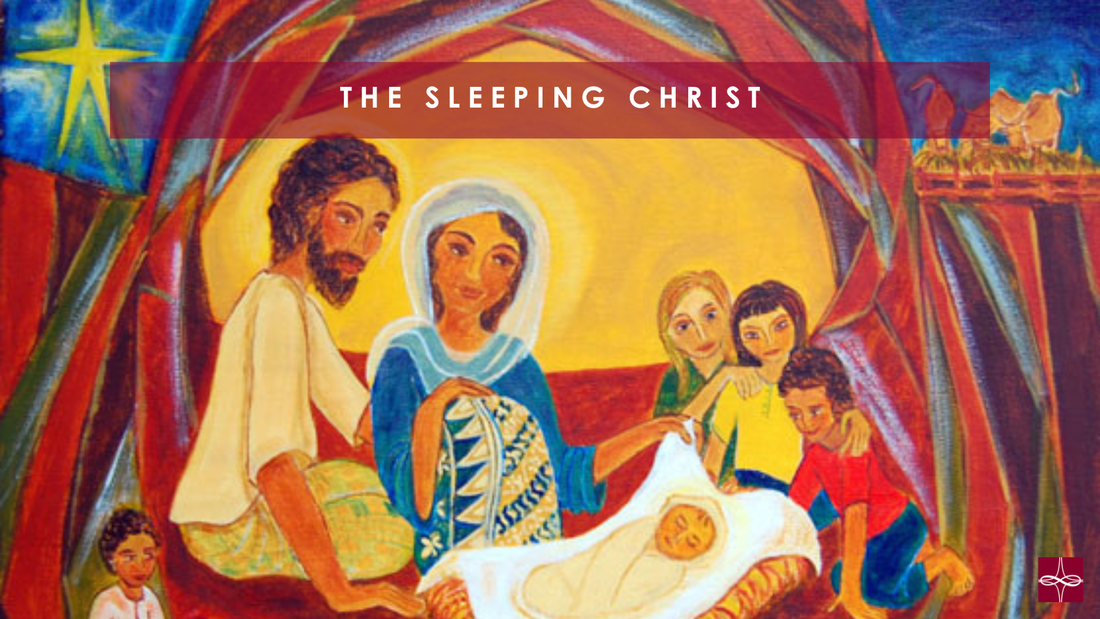

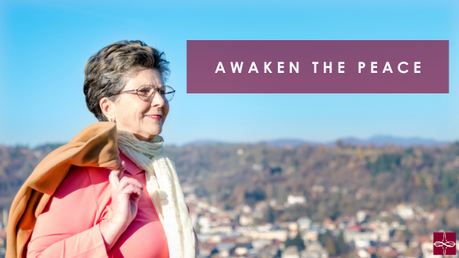

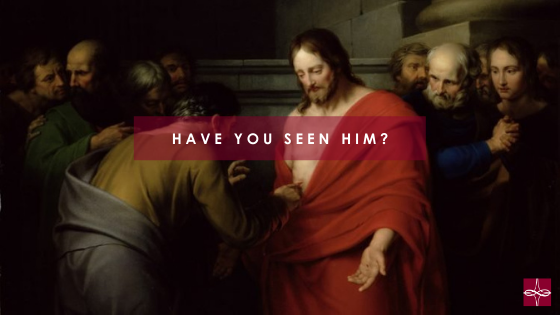

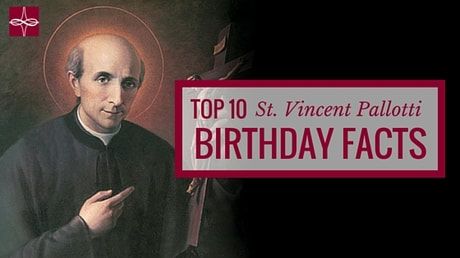
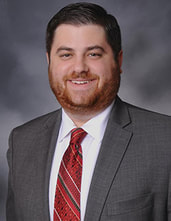


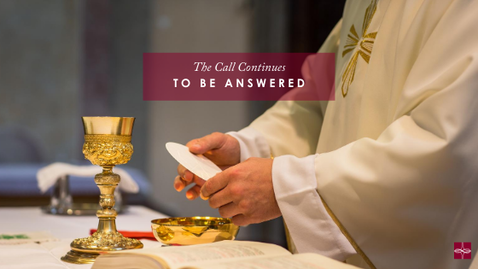



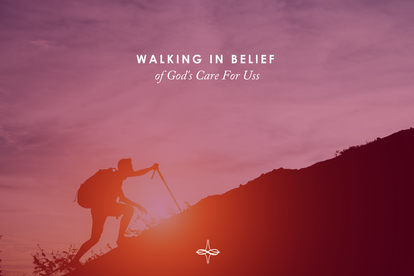
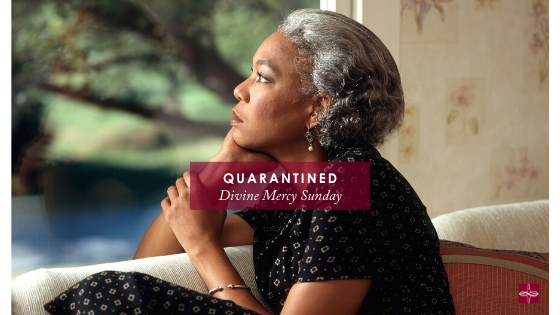


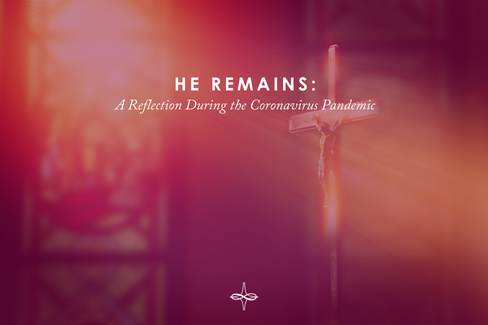

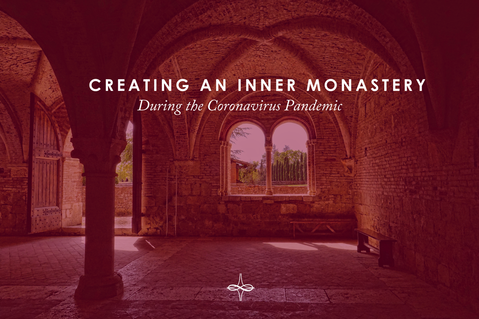

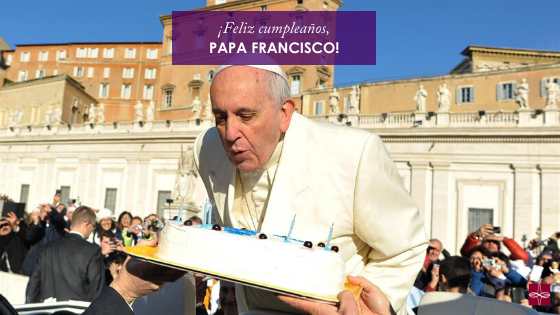

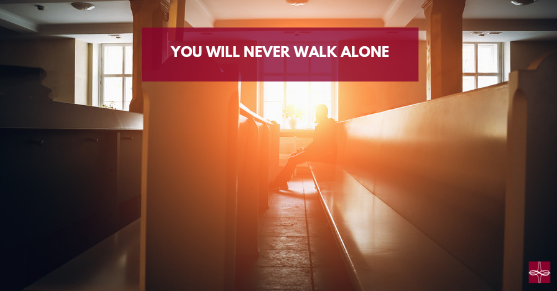

 RSS Feed
RSS Feed